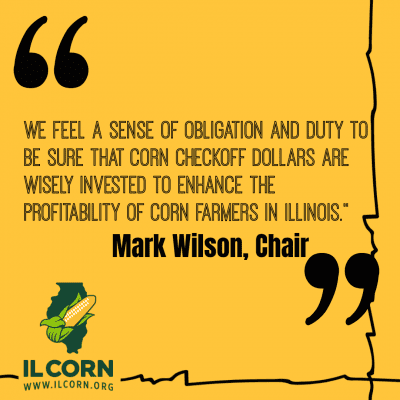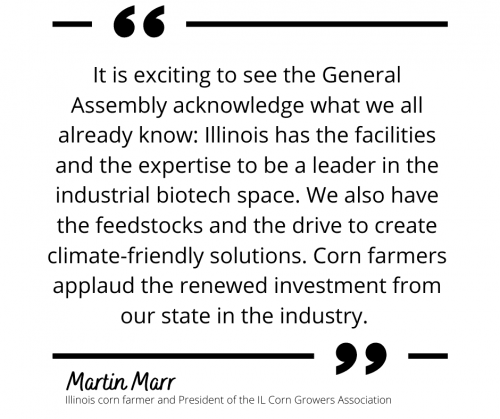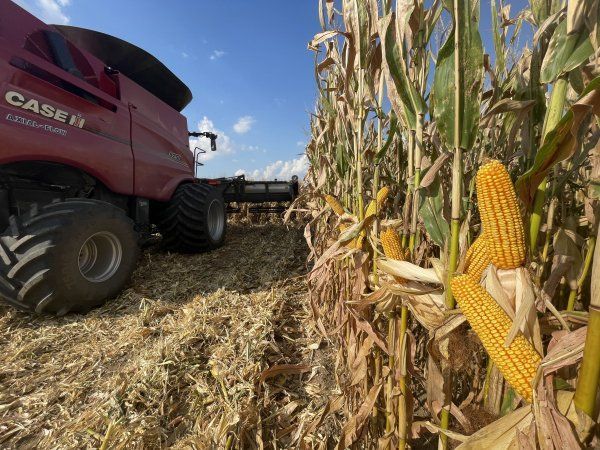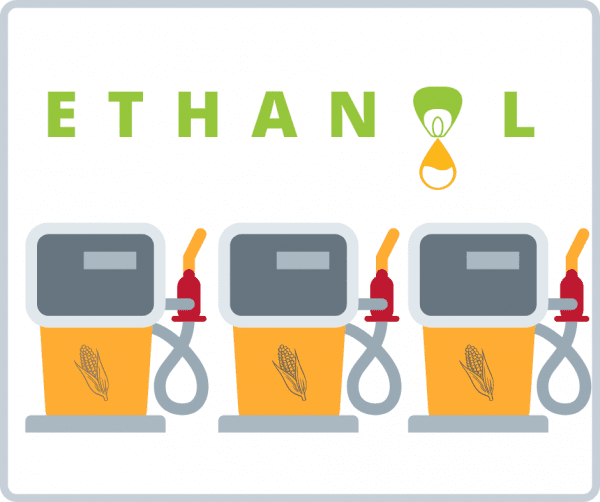Featured Article

April 28, 2022
Myth : “Planting into cover crops just doesn’t work; it’s too cold for my herbicides to work so I can’t manage cover crops in the spring; if you don’t kill them early, they get out of control; all that residue just wraps around my planter” Busted: While all cropping systems and management practices have their own unique challenges, once you learn how to properly manage them and know the watch outs you can become successful. One such practice is planting green. I don’t mean running to the local John Deere dealer and trading in all that red iron. Planting green is the practice of planting your cash crop into standing, growing, cover crops. This can be done for a variety of reasons but one of the most popular is to achieve as much above ground growth as possible to help with in-season weed control and suppression. Jim Isermann, an independent agronomy consultant and soil health expert shares some tips to master the art of planting green.

April 22, 2022
It was like a scene out of a Hollywood movie. Just as it looked as though the oil industry had succeeded in ending consumer access to higher levels of ethanol – a biofuel that is environmentally friendly and cuts gas prices – over the summer months, President Biden makes an eleventh-hour decision to use his emergency powers to allow for consumer choice. Yet, this wasn’t something out of Hollywood; it was reality. I was pleased to travel to Menlo, Iowa, on April 12 to watch the president tell a barn full of farmers that he would use his emergency authority to extend access to 15% ethanol blended fuel, or E15, through this summer. The president’s announcement comes after two years of legal drama, in which the oil industry, looking after its own profit margin, sued the U.S. Environmental Protection Agency to end access to E15 during the summer months. A court ruled in 2021 that the EPA had acted outside of its authority, and, as a result, access to E15 was set to end over the summer months, each year, starting this June. The consequences to ending access to E15, even for a few months, would have been serious for consumers and the U.S. economy. Gas prices would have risen even more than they already have; greenhouse gas emissions would have increased; and rural communities and farmers would have felt the economic effect of a shrinking demand for ethanol. Many thought getting the president to step in was a long shot. Afterall, he’s dealing with a deadly pandemic, rising inflation, a devastating war in Europe and a host of other issues. But corn grower leaders understood that all the president’s travails were a recipe for a winning argument for higher uses of ethanol. Corn grower leadership alongside the ethanol industry have been making the argument to administration officials and Congress that ethanol is a tool that can help the president address many of the country’s problems, from climate change to a sluggish economy. Timing was of the essence with the deadline quickly approaching, but just as it looked as though there wasn’t much hope, we received word from the White House that the president was to give a speech in Iowa the next day. Mystery abounded, flights were booked, holding statements were drafted. Surely, we thought, the president wouldn’t give a speech in Iowa if he weren’t going to make an announcement about E15. Then official word finally came in the evening beforehand from the White House that the president would intervene on the matter in favor of consumers and corn growers. Now we look to next steps. As we look to build on this momentum, we encourage Congress to advance the Next Generation Fuels Act. The Next Generation Fuels Act highlights ethanol’s unique ability to reduce greenhouse gas emissions, while unlocking new engine efficiency gains, allowing consumers to drive further between fill-ups. The bill will not only help further reduce greenhouse gas emissions, but it will also help lower gas prices, help family farms and revitalize rural economies. Whether it’s combatting climate change, helping lower soaring fuel prices or helping rural communities and family farms, there is something in the Next Generation Fuels Act for Democrats and Republicans alike. That’s why we are continuing to work to garner bipartisan support for this landmark legislation. So, we’re leaving one movie and moving to the sequel. Like all movies, we have villains, heroes and many twist, turns and surprises. But unlike a movie, the outcomes of these efforts have a real impact on real people. That’s why we take time to savor this victory while preparing for the next. Appleton is vice president of public policy at the National Corn Growers Association.

April 21, 2022
Illinois corn farmers voted in favor of increasing the corn checkoff rate established in the Illinois Corn Marketing Act in a vote held March 29, 2022, according to Illinois Department of Agriculture. View the official notice from the Illinois Department of Agriculture here. The referendum, which passed in an 88%-12% vote of all farmers subject to the act, will result in the current 5/8 cent corn checkoff rate increasing to 7/8 of a cent-per-bushel. The program will retain the right to refund and the new rate will take effect October 1, 2022. “We understand that it is important that we continue to invest these checkoff dollars with integrity to achieve the goals and meet the needs of corn farmers in Illinois,” said Mark Wilson, ICMB Chairman.

April 13, 2022
Last week, the Illinois General Assembly sent a signal that Illinois is ready to designate itself as the premiere location for industrial biotechnology companies and innovation. SB 1693, the Illinois Industrial Biotechnology Partnership Act, sponsored by Lance Yednock (D-Ottawa) and Sen. Scott Bennett (D-Champaign) capitalizes on previous investments in Illinois’ biotech research and infrastructure and creates the Illinois Industrial Biotechnology Partnership, a public private partnership to help market Illinois to the growing industrial biotech sector. Industrial biotechnology includes modern application of biotechnology for sustainable processing and production of biobased chemical products, materials, and fuels.

April 12, 2022
BLOOMINGTON, Ill. – After considering the burden of high gas prices on every American, President Biden announced today in Iowa that he will approve an emergency E15 waiver effective June 1. Allowing sales of E15 all over the country will not only provide fuel cost savings but will also increase American energy independence and reduce greenhouse gas (GHG) emissions. Compared to gasoline, ethanol reduces GHG emissions by about 50 percent. ICGA President Martin Marr, a farmer from New Berlin, issued the following statement:

April 9, 2022
Last week, leadership from four Illinois commodity groups and Illinois Farm Bureau worked to increase the Illinois State budget request by $750,000 from the General Assembly’s FY23 budget toward the IL Dept of Agriculture (IDOA). These funds would be used to provide additional field veterinarians and proactive foreign animal disease prevention measures necessary to protect Illinois agriculture in the event of looming foreign animal disease outbreaks.

April 8, 2022
Meet Jacob Wade – Father. Farmer. Four-time National Billiard Champion. Jacob is a 32-year-old 5th generation farmer, a father and a four-time national billiard champion. Jacob has been operating a combine of his own since he was 10 (although drove even earlier with someone else in the cab) and as a child would beg to go to the fields after school. Today with his family of 6 he gladly welcomes the company with him while he drives and has at one time had all 6 of them in a cab. Some of his favorite memories on the farm are all around harvest time. “Harvest has always been a time where our whole family is involved in the operation and that is very special to me. My mother to this day still operates a grain cart and has a CDL! Also, my wife, my sister, and occasionally when not working my mother, all bring meals to feed everyone working in the evening. Can't forget Grammy and the occasional afternoon pie,” says Jacob. Jacob is known in the community for being someone who steps up to help fellow farmers, takes the time to teach his children how to run a farm and why it is so important to keep farming alive. He is a great father and a helpful friend.

April 6, 2022
Farmers have a solution to high gas prices that’s here, renewable and better for the environment- ethanol. The fact is that the use of higher ethanol blends will cut gas prices and here’s why. It’s clean, gives us more global independence, is renewable and affordable. By displacing petroleum, increased ethanol use will enhance U.S. energy security while reducing emissions. Ethanol also significantly lowers carbon emissions and cleans the air. Updated analysis from the Department of Energy’s Argonne National Lab finds today’s ethanol results in up to 52% fewer greenhouse gas emissions than gasoline . Ethanol currently adds billions of gallons to our fuel supply every year, lowering demand for high-cost oil and less reliance on foreign oil.
Articles
2026
2025
2024
2023
2022
2021
2020

